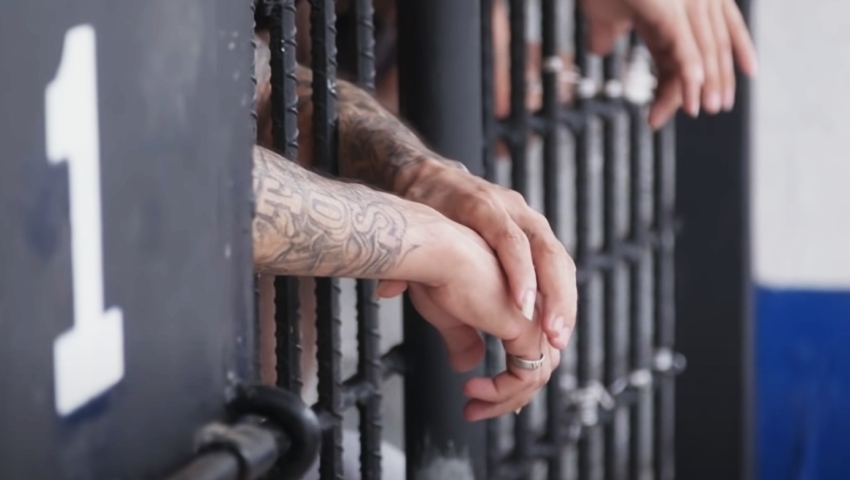Recent research has demonstrated how transnational criminal actors continue to threaten chaos on America’s doorstep through a “criminal insurgency”.
To continue reading the rest of this article, please log in.
Create free account to get unlimited news articles and more!
Instability breeds instability, and chaos breeds chaos. Allowing criminal actors to threaten state stability and legitimacy in Central America would invariably threaten regional security, requiring greater support from the US military and intelligence agencies to maintain order.
This is the perspective of US Air Force Colonel Joed Carbonell-López in the Journal of the Americas last year, noting that the growth in criminal enterprises within the Northern Triangle (El Salvador, Guatemala and Honduras) serves to challenge state stability through a “criminal insurgency,” enabling them to expand their criminal empires.
COL Carbonell-López paints a stark picture of the risks following criminal entryism into state apparatuses, evidencing the risk to the national sovereignty of their neighbours.
“As was seen by the increased threat posed to Israel and the Palestinian Authority when Hamas took control of the Gazan government, the criminal capture of a state exponentially increases the threat posed to its neighbors,” COL Carbonell-López argued.
“Likewise, the criminal capture of the governments of El Salvador, Guatemala, and Honduras would threaten hemispheric security and the U.S.’ influence in the region because the impact of their criminal activity will be felt, at a minimum, across the hemisphere.”
Such criminal entry into national governments would enable the criminal enterprises to substantially scale their operations, and their influence, respectively.
“It would grant TCOs unfettered access to financial markets, enable them to perpetuate corruption, expand their criminal enterprises, give them a monopoly on violence, and expand regional and social instability,” COL Carbonell-López continued.
Already, the analysis details the influence that criminal enterprises wield within the Northern Triangle’s governments.
According to COL Carbonell-López, MS13 gang members have allegedly been elevated to mayoralties, while members of the Guatemalan congress are likewise reportedly members of other criminal enterprises.
This is exemplified when considering the civil society roles played by TCOs within gang or cartel controlled territories, including the provision of public services, utilities and education.
Already, criminal enterprises have reached a scale in which they can challenge the economic power of their national governments.
“In 2017, the combined Gross Domestic Product (GDP) of the El Salvador, Guatemala, and Honduras was $123.41 billion. By contrast, the global drug trade alone was valued at over $320 billion annually, and $150 billion of that is attributed to the Americas,” COL Carbonell-López argued.
With an expected 100,000 members in the Northern Triangle alone, it would appear that such criminal organisations have the staying power to challenge the government over the long term.
So how can the governments of the Northern Triangle take back control?
Among COL Carbonell-López’s suggestions include military and law enforcement reform, as well as a coordinated push from regional governments overseen by the United States.
He argues that the Northern Triangle governments should cleave their law enforcement agencies from the military to gain greater reciprocity within their populations. This would be further bolstered through greater cultural diversity of recruitment into the forces, a “merit-based” promotion process and greater “community policing practices” taught to new trainees.
It is hoped that such methods would build greater rapport between the law enforcement and civilian populations, limiting the cultural influence of criminal organisations and facilitating greater government control.
Further, the US Intelligence Community should identify those government members in El Salvador, Guatemala and Honduras who have links to criminal entities to monitor and them sanction them.
It would be hoped that this would deliver essential “intelligence to induce Colombia, Costa Rica, El Salvador, Guatemala, Honduras, and Mexico to conduct coordinated, simultaneous operations against key individuals that are centers of gravity (COG) within the TCO networks operating in each of the countries, to include the US.”
As has been evidenced across the globe, failed states can threaten the security of their neighbours – and the US must act swiftly to mitigate the risk of chaos on its southern flank.
Get involved with the discussion and let us know your thoughts on Australia’s future role and position in the Indo-Pacific region and what you would like to see from Australia's political leaders in terms of partisan and bipartisan agenda setting in the comments section below, or get in touch with

 Login
Login







